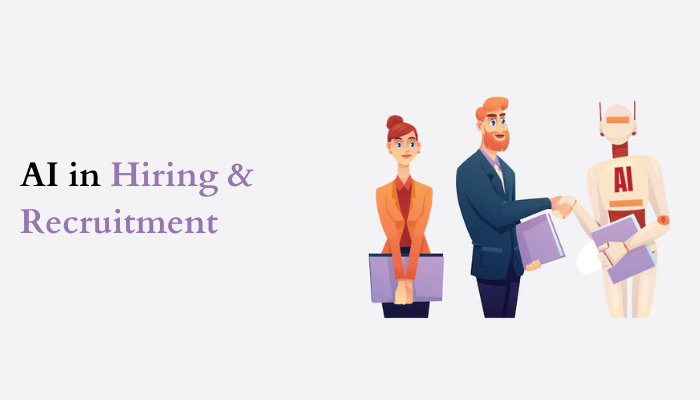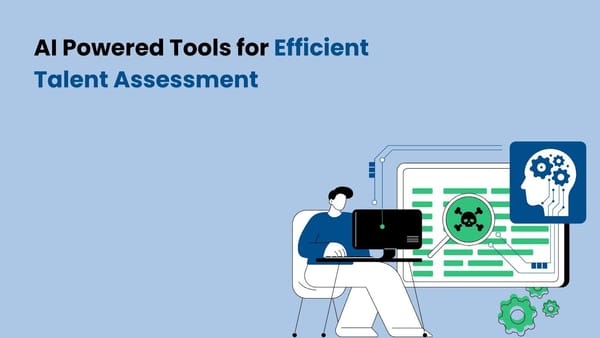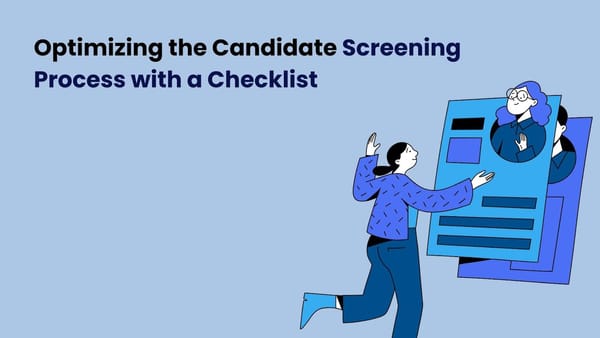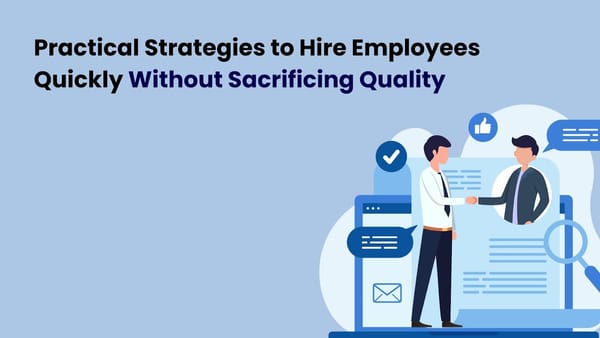Every day, companies chase top talent, searching for the perfect candidate to fill critical roles. Traditionally, this meant sifting through endless resumes and waiting for applicants to trickle in. But in outbound hiring, waiting isn’t an option—you have to go out and find the talent. And thanks to AI, this once laborious process has transformed into a swift, targeted operation with fewer manual tasks.
However, as AI becomes central to hiring, important questions emerge: Can it truly identify the best talent, or does it risk overlooking candidates with potential?
In this article, we’ll break down how AI is transforming recruitment today. We’ll explore its benefits, like efficiency and bias reduction, but also take a closer look at the potential risks—like the loss of the human touch in hiring. Whether you’re in HR or looking for a job, AI in hiring is changing the rules. It’s time to figure out what that means for you.
Let’s understand the basics of what AI in recruitment entails.
Overview of AI Adoption in Recruitment
Over 38% of HR teams now use AI to handle various aspects of hiring, from screening resumes to conducting initial assessments. These tools bring a level of precision and insight that’s reshaping how recruitment works.
Examples of AI in Recruitment:
- LinkedIn’s Recruiter 2024: This tool uses data-driven insights to help talent professionals find candidates. It predicts who might be ready for new opportunities, even if they aren’t actively applying, giving HR teams access to a wider talent pool.
- Tidyhire: Pushing the boundaries of AI, Tidyhire’s AI assistant, Ria, automates sourcing and outreach from a pool of over 700 million profiles. This allows HR teams to focus on relationship-building while Ria handles time-consuming tasks.
Unlock the potential of AI-powered hiring with solutions like Tidyhire, designed to streamline sourcing and outreach.
AI is also shifting recruitment’s focus from specific job titles to the skills candidates bring. By analyzing broader factors, AI enables companies to:
- Identify the right talent based on potential and adaptability.
- Adopt a more flexible hiring approach that aligns with future needs.
The Data-Driven Advantage:
Another key driver of AI adoption is the sheer volume of data it can process. Tools like IBM’s AI-powered recruitment platform provide:
- A comprehensive view of candidates by analyzing their professional networks, online presence, and career history.
- Enhanced understanding of candidates even before interviews, improving the quality of hires.
What is AI infused recruitment’s impact on the HR professionals? Let’s read about that next.
Impact on HR Professionals and Recruitment Efficiency
For HR professionals, AI has become a game-changer in managing recruitment. The most significant shift has been the reduction of time spent on manual tasks.
Sorting through hundreds or even thousands of resumes, once time-consuming, is now handled by AI in minutes. This allows recruiters to focus on more strategic aspects, like interviewing top candidates and improving talent acquisition strategies.
Key Benefits of AI:
- Reduced Manual Work: AI processes resumes quickly, giving recruiters more time for strategic tasks.
- Enhanced Precision: AI tools can match candidates to roles based on data, leading to better job fit.
- Minimized Bias: AI assesses candidates based on qualifications, helping reduce unconscious bias in hiring.
One of the most immediate impacts of AI is the automation of administrative tasks. Scheduling interviews, sending follow-up emails, and managing candidate pipelines can now be automated.
Looking for the best AI tools for hiring? Also, read
How Tidyhire Enhances This:
- Slack & MS Teams Integration: Tidyhire integrates directly with these platforms, allowing recruiters to manage everything from within their workflow.
- Ria, the AI Assistant: Tidyhire’s Ria automates tasks like candidate sourcing, follow-ups, and report generation, speeding up the recruitment cycle.
Now that you understand the impact, let’s read about the advantages of it in detail.
Pros of AI in Hiring and Recruitment
AI offers several clear advantages in hiring, transforming the way companies approach recruitment. From speeding up processes to making smarter decisions, AI has redefined what’s possible in recruitment. Let’s dive into the key benefits.
Efficiency in Recruitment Processes
AI transforms how you handle recruitment, making tasks that once took weeks happen in hours.
Use Case:
A large retail company might need to fill multiple seasonal roles during peak periods. By using AI-powered recruitment tools, they could automate initial resume reviews, significantly reducing the time to hire. This would allow the HR team to focus on final interviews and selection, ensuring quick and quality hires during a busy season.
Automated Resume Sorting
AI can quickly sort through resumes, scanning them in minutes for qualifications, skills, and experience.
Use Case:
A tech startup could potentially receive a large number of applications for a software engineer position. By utilizing AI for resume sorting, they might be able to quickly filter out unqualified applicants, ensuring that only the top candidates reach the interview stage. This approach could significantly reduce their recruitment workload.
Key Phrase Detection
AI identifies the key phrases and qualifications that match your job openings.
Use Case:
An international consulting firm could potentially use AI to scan resumes for specific certifications like PMP and Lean Six Sigma. By leveraging AI-driven key phrase detection, they might increase the likelihood of finding consultants with niche skills in a shorter time than usual.
Quicker Candidate Matching
AI helps you match candidates to roles much faster by analyzing skills, experience, and other factors.
Use Case:
A healthcare provider might urgently need specialized nurses. By leveraging AI for candidate matching, they could potentially identify and place qualified nurses into roles faster than traditional methods, helping them address a critical staff shortage during peak operational demand.
Time Savings for HR Departments
AI handles repetitive tasks like resume screening and interview scheduling, freeing up your time for more strategic tasks.
Use Case:
A multinational corporation could automate interview scheduling for numerous roles using AI. This would free up HR personnel to refine interview questions and improve onboarding processes, potentially increasing department efficiency and ensuring high-quality candidate engagement.
Enhancement in Candidate Matching
AI significantly improves how you match candidates to the right roles by leveraging data.
Use Case:
A financial institution could use AI-driven data analytics to match candidates with roles based on specific financial certifications and regulatory experience. This approach might improve their hire-to-attrition ratio, as candidates would be better suited for the compliance-heavy roles they fill.
Improved Efficiency and Effectiveness
AI processes large amounts of data quickly, allowing for smoother and more effective candidate-job matches.
Use Case:
A manufacturing firm looking for project managers could deploy AI to analyze past performance data and qualifications. This approach might help identify candidates with a strong track record in managing complex supply chain projects, potentially reducing the risk of hiring mismatches and project delays.
Higher Quality of Hires
AI ensures that the people you bring in align with the role, leading to better hires.
Use Case:
A logistics company could use AI to evaluate driver safety records, qualifications, and regional knowledge. This system might help them hire drivers with a proven track record, potentially reducing turnover and improving overall delivery efficiency over time.
Reduction in Hiring Time
AI cuts down the time it takes to hire by automating manual tasks.
Use Case:
An e-commerce firm might implement AI to automate the initial screening and interview scheduling for warehouse staff. This could reduce their hiring cycle significantly, helping them keep up with fluctuating demand without compromising on talent quality.
Data-Driven Matching Algorithms
AI uses data to match candidates with roles based on skills, experience, and qualifications.
Use Case:
A SaaS company could use AI-powered algorithms to assess applicants for software development roles based on coding tests, work experience, and peer reviews. This data-driven approach might lead to improved team productivity by enhancing skill-job alignment.
Reduction of Unconscious Bias
AI evaluates candidates based solely on their skills and experience, reducing the influence of unconscious bias.
Use Case:
A global law firm might use AI to anonymize candidate profiles during the initial screening process. As a result, their talent pool could become more diverse, potentially leading to an increase in the hiring of underrepresented groups and enhancing their commitment to inclusion.
Want to know the tools top recruiters rely on? Don't miss this.
Let’s also address the cons while we’re at it.
Cons of AI in Hiring and Recruitment
While AI provides several advantages in recruitment, it also comes with certain challenges. Knowing these challenges allows you to make informed decisions about how to integrate AI effectively while minimizing any drawbacks. Below are the key concerns and tips to overcome them.
Concerns Over Reduced Human Element
AI might speed up processes but can only partially replace the intuition and understanding that comes with human interaction. Candidates may feel disconnected from an entirely automated process, which can affect their overall experience and your company’s image.
Pro Tip: Incorporate human touchpoints in key areas of the recruitment process. After AI shortlists candidates, conduct live interviews to assess cultural fit and personality, ensuring candidates feel valued and engaged. You can consider using tools such as Tidyhire to cater to this need.
Potential for Algorithmic Bias
AI systems are designed to be objective, but they can inherit biases from the data used to train them. If the data contains patterns of past bias, the AI may replicate those, which can undermine the fairness of the hiring process.
Pro Tip: Regularly audit your AI systems and the data they use. Incorporate diverse data sets and regularly review hiring outcomes to ensure the AI isn’t perpetuating hidden biases.
Dependence on Data Quality
AI’s ability to make accurate decisions depends on the quality of the data it processes. If the data is incomplete or outdated, it can lead to flawed hiring recommendations, causing you to overlook qualified candidates or hire poorly.
Pro Tip: Invest in data management and regularly update your datasets to ensure accuracy. Clean, unbiased, and complete data will lead to more accurate AI-driven decisions. Explore how Tidyhire can help you with this.
Resistance to Change within HR Departments
AI might streamline recruitment, but adopting new technology often faces resistance. HR teams that are used to traditional methods may hesitate to fully embrace AI, especially if they’re unfamiliar with how it works.
Pro Tip: Provide thorough training and clear communication about the benefits of AI. Involve your HR teams in the selection and implementation process to help them feel more comfortable and engaged with the technology.
A Quick Recap
Maintaining a human-touch is what’s most important in today’s AI-driver world. Let’s now read a little about this criteria.
Maintaining the Human Element in AI-Driven Recruitment
As you integrate AI into recruitment, it’s important not to lose the personal touch that defines human resource management. While AI can handle tasks at scale, there are critical parts of the hiring process where human involvement is irreplaceable.
Importance of Keeping the Human Factor:
- AI processes data, analyzes resumes, and schedules interviews, but it lacks the intuition and empathy that humans bring.
- Candidates still seek human interaction to feel seen and heard.
- The human element is essential for assessing traits like emotional intelligence, adaptability, and cultural fit—areas where AI falls short.
AI as an Assistive Tool:
- AI should be used as a tool to assist HR teams, not replace them.
- Data-heavy tasks like resume screening can be automated, but final hiring decisions still require the human touch to evaluate factors AI can’t quantify.
Role of Empathy, Integrity, and Personal Judgment:
- Candidates are more than just resumes; they bring unique stories, experiences, and personalities to the table.
- AI lacks the capacity for empathy or personal judgment, both of which are crucial in recruitment.
- HR professionals add the context and understanding that makes the process feel personal and fair.
Human Review for Unique Candidates:
- AI might overlook candidates who don’t fit traditional criteria but still possess exceptional qualities.
- Human reviewers can identify candidates with nontraditional career paths or transferable skills that may not be obvious to AI.
- This human oversight ensures that valuable candidates aren’t missed in the AI-driven process.
Conclusion
AI has undoubtedly reshaped the recruitment landscape, bringing speed, precision, and data-driven insights to hiring processes. It helps you handle massive volumes of applicants with ease, makes candidate matching more accurate, and reduces the influence of unconscious bias. By automating time-consuming tasks, AI allows your HR teams to focus on what truly matters—finding the right people for the right roles.
However, AI isn't without its challenges. You must ensure that it doesn’t strip away the human touch that’s so important in recruitment. Balancing automation with personal interaction remains key to making candidates feel valued and ensuring that hiring decisions take into account factors that algorithms can’t measure, such as cultural fit, empathy, and potential.
As AI continues to evolve, it will become an even more integral part of the hiring process. Companies that master both AI’s speed and human insight will lead the future of recruitment. Balancing automation with personal interaction remains key. Tidyhire lets you strike this perfect balance, automating what you need while keeping the human element alive.
Ready to transform your recruitment process? Explore how Tidyhire can work for you.
FAQ
1. How is AI being used in hiring?
AI automates tasks like resume screening, interview scheduling, and follow-ups, improving efficiency and reducing bias in recruitment. It analyzes candidate data to match skills with roles more accurately, helping HR teams focus on strategic decisions and relationship-building.
2. What companies use AI for hiring?
IBM Watson Talent – Uses AI for candidate screening and predictive analytics to improve hiring decisions.
Hilton – Leverages AI-powered chatbots for scheduling interviews and improving candidate experience.
Unilever – Implements AI to analyze candidate data and automate parts of the recruitment process.
Amazon – Uses AI to streamline the hiring process by automating resume analysis and candidate evaluation.
Delta Air Lines – Employs AI technology to enhance candidate experience and reduce time-to-hire.
Procter & Gamble – Utilizes AI for large-scale recruitment, automating candidate screening and engagement.
Siemens – Uses AI to automate the screening and shortlisting of candidates for a variety of roles






